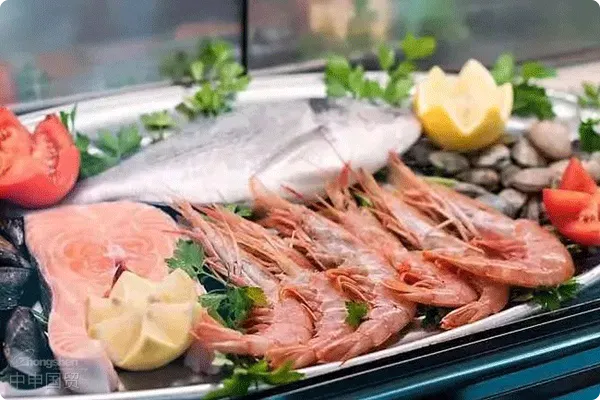- Shanghai Zhongshen International Trade Co., Ltd. - Two decades of trade agency expertise.
- Service Hotline: 139 1787 2118
How to ensure the safety and freshness of imported frozen food has become the focus of attention of many consumers and regulatory agencies. Volatile basic nitrogen (TVB-N), as an important indicator of food freshness, plays a crucial role in ensuring food safety.
Definition of Volatile Basic Nitrogen
Volatile basic nitrogen is a series of alkaline nitrogen-containing substances, such as ammonia and amines, produced by the decomposition of proteins in animal food during the spoilage process under the action of enzymes and bacteria. These substances not only have obvious volatility, but also the level of their content can directly reflect the freshness and spoilage degree of food.
2、Testing Standards and Limits
In the national food safety standards, different standards for the content of volatile basic nitrogen are set for different types of aquatic products. For example:
(1) Marine fish and shrimp: ≤30mg/100g
(2) Marine crabs: ≤25mg/100g
(3) Freshwater fish and shrimp: ≤20mg/100g
(4) Frozen shellfish: ≤15mg/100g
(5) Pickled raw animal aquatic products: ≤25mg/100g
(6) Pre - prepared animal aquatic products: ≤30mg/100g
These standards are to ensure the freshness and safety of imported frozen food.
3、Health Impacts of Volatile Basic Nitrogen
Although volatile basic nitrogen itself does not directly harm the human body, its exceeding the standard means that the food has spoiled and is not suitable for consumption. Spoiled food may produce various toxic and harmful substances. Long - term consumption may have chronic toxic effects on the human body, and there is even a risk of carcinogenesis and teratogenesis.
4、How to Ensure the Safety of Imported Frozen Food?
In order to ensure the safety of imported frozen food, the General Administration of Customs conducts strict inspections on imported frozen food. Key verifications include container numbers, seal numbers, product labels and markings, etc. At the same time, consumers can also request the Inspection and Quarantine Certificate of Entry Goods when purchasing, so as to trace the source and production method of the food.
In addition, overseas production enterprises need to obtain registration from the General Administration of Customs before exporting food to China, and ensure that the food they produce complies with relevant Chinese laws, regulations and national food safety standards.

The above content is sourced from the customs release.ZhongShen International TradeAs a one - stop importExport Representationservice provider, it can provide customizedimport and exportSolution. If you needforeign tradeFor import and export agency services, please feel free to contact our company for business inquiries. The consultation hotline is 139 - 1787 - 2118.
Related Recommendations
Contact Form
? 2025. All Rights Reserved. 滬ICP備2023007705號-2  PSB Record: Shanghai No.31011502009912
PSB Record: Shanghai No.31011502009912









